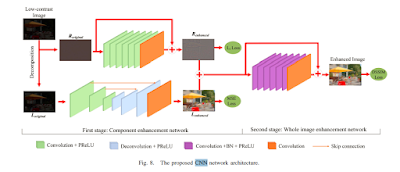Lightweight Fine-Grained Search over Encrypted Data in Fog Computing
Aim: propose a Lightweight Fine-Grained Search (LFGS) system which supports fine Grained access control and single keyword search.
Existing System:
· the existing ciphertext retrieval schemes rarely focus on the fog computing environment and most of them still impose high computational and storage overhead on resource-limited end users.
· existing CP-ABKS schemes are approximately proportional to the complexity of access policy, which greatly hinder the uses of resource-limited IoT devices.
· existing CP-ABE schemes is that encryption or decryption operations involve time-consuming pairing operations and a number of other operations increasing with the complexity of access policy.
Proposed System:
Lightweight Fine-Grained ciphertexts Search (LFGS) system in fog computing by extending
Ciphertext-Policy Attribute-Based Encryption (CP-ABE) and Searchable Encryption (SE) technologies, which can achieve fine-grained access control and keyword search simultaneously.
Objectives:
Fine-grained keyword search. LFGS system gains one-to-many rather than one-to-one encryption and specifies flexible access control over shared data, which eliminates some inherent drawbacks of existing public key cryptography schemes. Besides, LFGS system enables end users to search ciphertexts of interest according to queried keyword.
• Lightweight computation on end users. With the help of fog nodes, LFGS system reliefs the large computational burden from data owners or end users, which means that partial computation including files encryption, trapdoor generation and ciphertexts decryption is offloaded to fog nodes without any loss of data confidentiality.
• Attribute update. The extended LFGS system supports attribute update and just needs to update the keys and ciphertexts associated with the updated attributes, which not only avoids illegal accesses using outdated keys but also imposes less computational overhead on this system.
• Conjunctive keyword search. The extended LFGS system allows end users to issue multiple keywords in a single search query so that it can improve the user search experience as the conjunctive keyword search can narrow down the search scope and quickly locate the results of interest.
• Security and practicability. Formal security shows that LFGS system is selectively secure against
Chosen-Keyword Attack (CKA) and Chosen Plaintext Attack (CPA).
Methodology:
Conclusion:
a Lightweight Fine-Grained Search (LFGS) system for the resource-limited EUs in fog computing. the basic LFGS system could greatly reduce the computational and storage burden of EUs by outsourcing partial computation and storage to the honest-but-curious FNs without leaking sensitive information; on the other hand, the extended LFGS system could support conjunctive keyword search and attribute update to further narrow down the search scope and avoid unauthorized accesses, respectively.
Future enhancement:
continue to concentrate on expressive search including fuzzy keyword search, semantic keyword search, and so on. Besides, the secure channel utilized in our LFGS system should be eliminated as secure channel will incur high communication burden. still need to further improve the efficiency of LFGS system so that it can be applied in various schemes.
For additional details comment below with requirements.
For additional details comment below with requirements.








This comment has been removed by the author.
ReplyDelete